“It is better to have your head in the clouds, and know where you are... than to breathe the clearer atmosphere below them, and think that you are in paradise.” -Henry David Thoreau
Every week at Starts With A Bang is special, but we made an amazing move, over to Forbes, which is the new home of our blog! Starting on November 2nd, we made our move, and as the month unfolds, we'll be bringing all-new content over there, to be republished (ad-free) on Medium the next week. Here's the good stuff, just in case you missed anything:
- The very, very end of the Universe (for Ask Ethan),
- I'm going to be AXE COP! (for our Weekend Diversion),
- Move Over Hubble, Gravity Itself Is The Best Cosmic Telescope Of All (Mostly Mute Monday will return next Monday),
- Jupiter May Have Ejected A Planet From Our Solar System,
- Keeping Better Time With Atomic Clocks (a live-blog event with nobel laureate David Wineland),
- This Is The Largest, Most Massive Distant Galaxy Cluster Ever Discovered,
- and Mystery Of Mars' Lost Atmosphere Solved At Last, Thanks To NASA's MAVEN Mission (sorry, Throwback Thursday fans; that official series is ending).
As always, I'm happy to bring you the best of the comments from this past week, and know that starting next week, I'll be going back two weeks rather than the standard one in order to make sure that any follow-up comments that need attention get exactly what they deserve. That said, let's jump on in to your Comments of the Week!
From James Carlson on the Big Rip scenario: "It could be that entropy doesn’t play to a full house in that the big rip might serve to recreate the universe in a sudden expansion of spacetime and the creation of sub atomic oaricles."
There are a lot of misunderstandings about both entropy and the Big Rip, and this combines the two. Entropy, to be clear, is a measure of how ordered or disordered a system is. It can stay the same or increase in a closed system, but never appears to decrease. However, the expansion of space (or spacetime) and/or the presence of a particle-creating phase transition (which is what I assume you meant) in no way either recreates the Universe or violates what we know about entropy.
However! The "Big Rip" does not necessarily mean that the Universe gets ripped apart into oblivion, just as a "Big Crunch" doesn't necessarily mean that space and time disappear and get swallowed up into nothingness. While a crunch could lead to a "bounce" and a cyclic scenario (above), the steps up towards a rip -- and hence to higher intrinsic spacetime energies -- could lead to a phase transition that give rise to a new hot Big Bang: a rejuvenated Universe. This theory hasn't gotten a lot of attention, but it was put forth by physicist Eric Gawiser about 15 years ago, and it remains an intriguing possibility. Keep it in the back of your mind when you think of the Big Rip.
From Denier on the very, very end: "Maybe it is just me, but I’m thinking you are not going far enough in the future. The cosmic rate of expansion is ever increasing. It could very well get to the point where even the strong nuclear force is overwhelmed by the rate of expansion. It will be like a black hole in every direction and all the data that was ever in the universe is gone. That includes whatever you did. Merry Christmas everyone!"
But the cosmic rate of expansion is not ever increasing. Don't confuse the phrase "the accelerating Universe" with the (incorrect) statement that "the expansion rate is increasing." The expansion rate -- the Hubble rate -- is not increasing. It is not observed to increase; in fact, it is decreasing right now! Its present value, about 70 km/s/Mpc, will drop to an estimated 45-50 km/s/Mpc, where it will asymptote. Then it will remain at that rate forever; that's what a cosmological constant predicts.
The individual galaxies that are unbound from one another, however, will speed up as they move away from one another. The galaxies of the Virgo Cluster, for example, moves away from us right now at around 1,200 km/s. As time goes on, they will move away at 2,400 km/s, then 4,800 km/s, then 9,600 km/s... and after enough time, they'll be receding faster than the speed of light! This is due to the expansion of space, of course, but not due to the expansion rate increasing. And hence, unless dark energy increases in strength -- unless it's not a cosmological constant -- we'll never have that Big Rip or dark energy overwhelming any of the forces. So there are many more Merry Christmases ahead. We think.
From Julian Frost on Axe Cop! "Ethan, you used to change your picture up top when you had a new Hallowe’en costume. Last year, you were a manotaur, but you didn’t change the picture. Are you going to change your picture this year?"
Ugh... fine, Grey Diamond, you can tell your story.
I mean, I think I can handle that. It's a good idea, and it's done. I'll chop your head off!
 Image credit: Jerry Coyne via https://whyevolutionistrue.wordpress.com/2015/11/06/the-bizarre-naked-m….
Image credit: Jerry Coyne via https://whyevolutionistrue.wordpress.com/2015/11/06/the-bizarre-naked-m….
From eric on Halloween costumes: "Great costume. Saw this on Jerry Coyne’s site and thought to myself “hey, maybe a costume for Ethan for 2016?” Paint your limbs purple and wear and awesome hat!"
So what you're saying is, you want to see more Ethan genitalia on this site? Let's... uhh... not exactly take a vote on that. I appreciate the sentiment -- really I do -- but the ship has kind of sailed on that one.
From See Noevo on the disfavoring of the Nice Model: "I’m assuming the “Nice Model” that was disproved was the latest consensus model, which replaced other models which had been disproven, or at least shown to be less satisfactory than “Nice.”"
First off, it's the Nice model as in Nice, France, or NEESE, not the "Nice" model as in "Nice head, I think I'll take it." The issue is that in most simulations -- and that's the only way to adequately understand a system as chaotic as planet formation -- you form large, giant worlds in the inner Solar System, which we have exactly none of. So that's the difficult thing to explain. The Nice model did an excellent job of modeling how the gas giant world could have wound up in their current configuration, conveniently explaining how the inner Solar System was "cleared out" of giant worlds.
Well, partially. It was an idea proposed in 2005, and it gave rise to the Grand Tack model in 2011/2012, which is where the "ejected giant (or two)" idea came from; it seems to work better. But for all of it, it requires Jupiter migrating through the inner solar system. And if that were the case, it would have ejected Mercury and Mars with near certainty, which means that some or all of the rocky, inner planets likely formed after the Jovian migration. This changes the timescale of the solar system, and means the late heavy bombardment did not arise from Jupiter moving outward through the asteroid belt.
That's how the science has changed; it's a learning, revising-as-we-go experience. Stick around, this is in many ways the best part of the ride!
From CFT on science denial: "I would point out your very use of a term like ‘science denier’ to describe someone who does not agree with you for whatever reason is as vulgar as calling them an infidel. ‘Denier’ is a term used by a true believer or zealot in a matter of faith or religious inquisition, and is completely inappropriate coming out of the mouth of a scientist."
I take it that you haven't been working as a scientist in the field of science communication, professionally, for many years as some of us have. If you have, you're very likely to run across the same types of arguments over and over, couched in different words or phrases, but with the same discredited themes and conclusions.
You're likely to see the same deliberate mistakes, the same dissembling, the same techniques (Gish Galloping), the same Zombie arguments... in short, the same denial tactics. Now there are some honest people who are open to assimilating new knowledge, to revising their opinions, and to learning new things in general and then changing their conclusions accordingly, and I agree that labeling them with a negative term that puts them on the defensive doesn't do any good.
But I also feel lots of sympathy for those who work so hard to put the valid information out there who are simply met -- over and over -- with the same stubborn resistance to facts, reasoning and the quality science that's out there. What you are doing is known as tone policing, and it's a known and common tactic to divert attention away from the real issue: that someone is demonstrably wrong in their assertions, and yet their assertions serve to misinform a large segment of the general populace. For my own part, I strive to get the correct information out there in as honest and kind a fashion as possible, but I also strive to really control only my own actions, and to restrain myself in moderating comments. (And responding to them, too.) All of that is to say, this: I hear what you're saying, but I'm not sure I 100% agree.
And finally from Narad on the loss of Mars' magnetic field: "
However, at some point less than a billion years after Mars formed, its global magnetic field ceased to be, removing the planet’s main source of protection from the solar wind.
Is there a current explanation for how this happened?
Giant impactors appear to be out in front (PDF)."
It's an interesting theory, and it's certainly one that's gotten the most attention as of late, but I don't know that it's the leading theory. Mars is small, and by small, I mean it has only a few percent the mass of the Earth. Its volume is much less than Earth's, while its surface area is only marginally less; combine those two factors, and Mars loses its heat twice as quickly as Earth does. If you throw in the fact that it has less heating to begin with (due to less gravitational contraction and fewer radioactive materials in its core), and the Martian core could have -- with no external factors -- completely lost its dynamo properties in only ~500 million years.
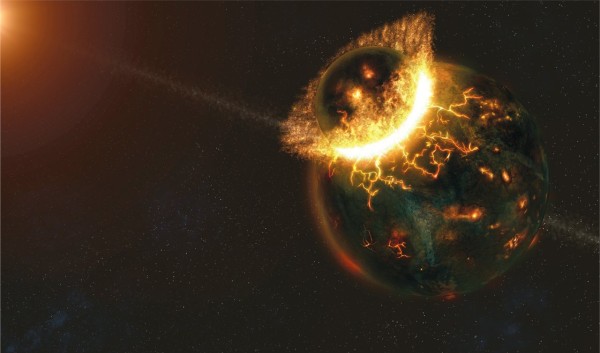 Image credit: Fahad Sulehvia http://www.novacelestia.com from Science magazine, October 11, 2013.
Image credit: Fahad Sulehvia http://www.novacelestia.com from Science magazine, October 11, 2013.
There could have been other factors at play, though. I just want to point out that I don't think giant impactors are universally favored, nor do we have evidence for a giant impact with Mars in the cratering record or elsewhere in Martian geology. It's possible, but "out in front" is kind of a stretch at this point. I think it's important to be honest about how large our uncertainty is at this time.
And with that, we come to the close of our week. Thanks for joining me, and if you've got suggestions for what you'd like episode two of our Podcast series to be, drop us a line and let us know!

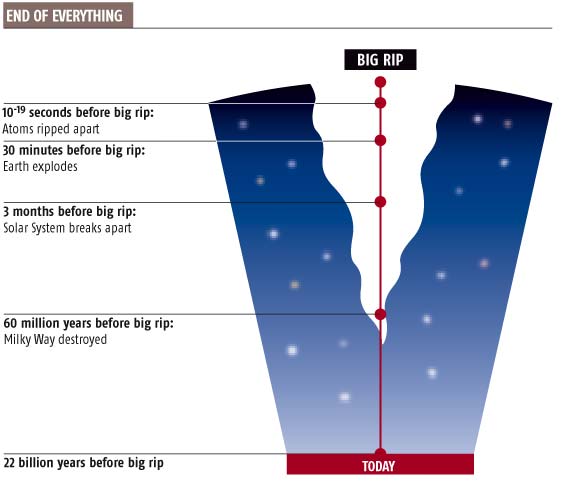
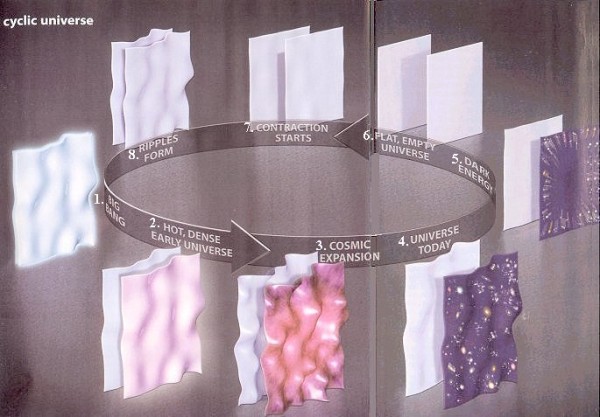
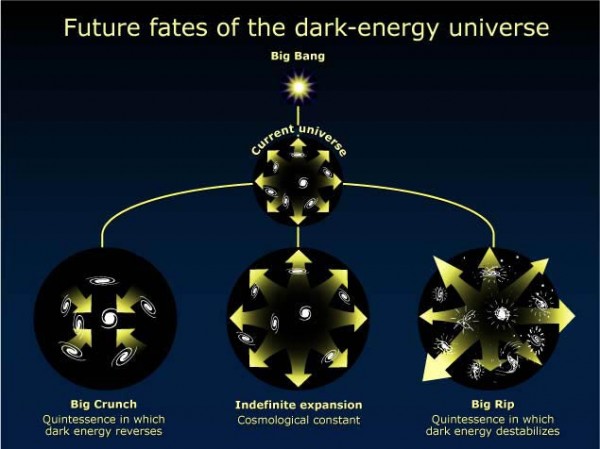



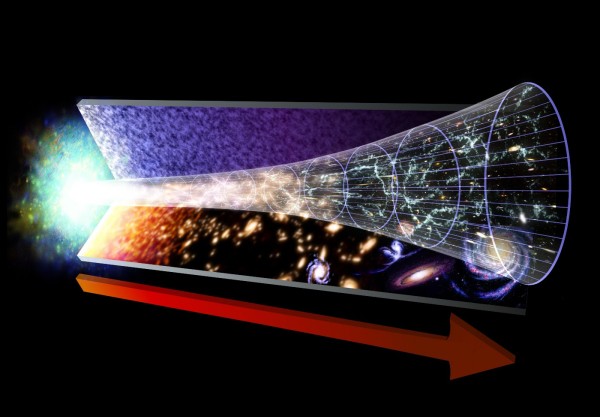

Point taken. In retrospect, I should have said "strike me as promising." There's a certain appeal to getting two birds (the crustal dichotomy and the dynamo) with "one stone," as it were. Backing up, though,
Now I need to go read about Mercury. Axe Cop strikes again.
Ethan, specific questions:
1) I got the distinct impression some time ago, that Big Crunch and cyclical universe theories had come to be rejected by mainstream cosmology. Has something changed to put them back on the agenda for consideration?
2) In "Was Earth Born With Life On It?" (29 October, on Medium), you talk about amino acids found in meteorites. What's the likely source of those amino acids? What process do most scientists think could have produced them?
I'm inclined to think that if amino acids are widely distributed in the universe (as appears to be the case), then they may become building blocks toward the development of life on any planet within a suitable temperature range and with sufficient liquid water.
In a transpermia scenario, what do you think is the most complex material that could reasonably survive the processes involved? (I'm assuming a large object impact, the high temperatures involved in being broken loose from a planet and ejected into space, and then the rapid cooling to ambient space temperature, and then the heat of entry into a planet's atmosphere and impact on its surface.) I'm inclined to think that DNA and RNA would be destroyed by those levels of heat, but that some simpler molecules could persist: possibly enough to serve as building blocks for life when they crash-land on another planet. In that case, transpermia would not convey any particular type of life from one planet to another, but only some critical chemicals that enable _some type of life_ to develop.
How well do my speculations in the preceding two paragraphs comport with widely-accepted theories?
3) In "How Stable Is Matter?" (29 October, on Medium), you said that the human body consists of 10 ^ 28 atoms. Is that a generally accepted number, and what's a good widely-accepted reference source for it?
Reason I ask: I'm looking to reconcile that number (10 ^ 28 atoms in a human body) with some widely-circulated numbers in the range of 10 ^ 16 to 10 ^ 28 referring to the complexity of human brains under various models of neural computation. Next step is to find some friendly neuroscientists to tell me where those numbers come from;-) (85 billion neurons in a human brain x 3,000 connections per neuron, only get us 595 trillion possible connections, so clearly that's not the basis of the 10 ^ 16 and 10 ^ 28 numbers. Any neuroscientists who happen to be reading this are encouraged to speak up!)
In the column dated 31 October, 609silmät asks what might be done under "heat death of the universe" conditions, to allow life to persist in isolated places. For example the construction of artificial stars.
Assume a cosmic civilization with new physics that expands upon current physics but does not violate current physics. Such a civilization might get an early start at finding ways to bring red dwarfs or at least brown dwarfs together to build stars with sufficient energy output to power planets. Alternately it might build Dyson clouds around red and brown dwarfs to capture large quantities of their energy output to power one or more planets in stable orbits.
But in the end, those stars will run down as well, over periods of trillions of years. Unless some process intervenes that is presently unknown or considered highly unlikely, the inhabitants of those planets will eventually need to reduce their populations to whatever can be supported with on-planet energy sources, for example fusion. As they run out of fusion fuel, they will decrease in population further, and eventually the last generations will die, and life will diminish until not even bacteria or viruses remain.
Along the way, the intelligent species at the time will probably compile all of the knowledge they have accumulated, into some physical form that can persist indefinitely, such as in words and illustrations impressed into extremely hard metals or minerals or some combination thereof. Thus the end-state of the universe is one without biological life, but with the informational history and heritage of biological life preserved indefinitely, for the intrinsic value of doing so.
Alternately if the soul exists as described in traditional religion, life (in a nonbiological sense: minds/souls) will continue in another state of existence entirely. But that's outside the range of speculation of empirical science, so it's not a topic for this blog.
"1) I got the distinct impression some time ago, that Big Crunch and cyclical universe theories had come to be rejected by mainstream cosmology. Has something changed to put them back on the agenda for consideration?"
Because this isn't the same universe, there's no carry over of entropy that makes a cyclical universe (the same one) fail to be physically possible.
"3) In “How Stable Is Matter?” (29 October, on Medium), you said that the human body consists of 10 ^ 28 atoms. Is that a generally accepted number, and what’s a good widely-accepted reference source for it? "
You can calculate the number yourself. To an order of magnitude, we're water. H2O is 18 neutrons, we're 70kg, the mass of the neutron is 1.7 x 10^-27. Multiply and divvy and you get ~3x10^27.
If you don't want to now get mocked for being a pre-teen at maths, and not even today's pre-teen who at least know how to google, you should have tried to do some of the dam work yourself, not indicate how pointless teaching you maths in school was.
"2) In “Was Earth Born With Life On It?” (29 October, on Medium), you talk about amino acids found in meteorites. What’s the likely source of those amino acids?"
You can google this one up too. The building blocks are available in abundance in stellar nursery gas clouds. Crystal lattices can cause volatiles to condense, and to retain a form.
Badabing, bada boom, amino acids.
"Reason I ask: I’m looking to reconcile that number with some widely-circulated numbers in the range of 10 ^ 16 to 10 ^ 28 referring to the complexity of human brains under various models of neural computation"
Yeah, mathturbation will make you math blind. Not to mention that is a pretty nonexistent correlation there. Neither is there anything like some causal reason for them to be concordant. Even in cosmology, 8 orders of magnitude is a bit big.
Or for the coincidence to have any meaning even if they were concordant.
Lastly, life does work, and that work must still obey the laws of thermodynamics, such as result in the carnot cycle. Therefore the rate at which "life" can do work depends on the difference in entropy between the two states. As the universe cools, the thermodynamic difference drops and the amount of work available to be done drops, so the rate of life processes reduces.
Ever wonder why cold-adapted species live so slow (and so relatively long)? Carnot cycle.
Obviously, that is
a) not widely mentioned in schools or at random
b) a very simplified explanation, hence a specialist would flesh it out massively
so you don't get mocked for that..!
Re. Wow @ 4: Ad-hom, you lose.
BTW, I'm dyslexic, hence the random math disabilities. Do you also mock people who limp when they walk? F--- you for that.
However the item in question was not about calculating the value or about spurious correlations between similar-looking numbers, it was about reconciling two things that both appeared in canonical statements but appear to contradict each other.
Yes I know about Carnot cycles, they also drive climate and weather on planets.
Y'know, you really do manage to single-handedly poison the quality of discussion on this blog and chase people away with your incessant nastiness. Your behavior is the reason I tend to not visit this blog very often, though I am no stranger to ferocious online debates among highly opinionated participants. If you can't engage in online discussions in a civil tone, Ethan really ought to ban you from here. Enough is enough.
"Re. Wow @ 4: Ad-hom, you lose."
BWAHAHAHAHAHA!
That is not an ad hom! YOU LOSE!
"BTW, I’m dyslexic,"
So dyslexia now means you can't do maths???? Looking up the definition of dyslexia now. Nope, apparently you're not dyslexic, you're a moron, that isn't the definition of dyslexic.
Seems you have a problem with word definitions. Which would be proof you are a moron.
"However the item in question was not about calculating the value"
Seems you don't even know what you're saying. Remember this?
You would have worked it out yourself and found it easily.
Instead you thought nothing and just wanted others to do your work for you so you wouldn't have to strain the grey matter at all.
Because that's difficult for you, and you shouldn't have to do something unless it's easy.
Or something equally infantile.
"Yes I know about Carnot cycles, they also drive climate and weather on planets."
Yet you didn't know what it meant.
It's easy (well, for most people, you obviously have problems here) to know the definition of words, but rather more difficult to work out what it means when outside the couching of that definition.
"Y’know, you really do manage to single-handedly poison the quality of discussion on this blog"
Y'know, you were the one who posted braindead idiocy here and are now poisoning the quality of discussion on this blog EVEN FURTHER.
You DO know what that phrase "quality of discussion" means, right?
And do you know what "rhetorical question" means?
Apparently not.
"Your behavior is the reason I tend to not visit this blog very often"
If all you're going to do is ask someone else to do the working out for you on a question someone 12 years old could easily do, then what is lost when you don't post?
And most people visit the medium.com site which has more than the mere introductory stuff on the topic.
But maybe you didn't think of that.
But another rhetorical question: why the hell would anyone care how often you visit so much that saying "I won't come here any more you meanie!" would make me NOT take the deserved piss out of someone who could, but will not put the effort in, work the damn thing out themselves?
Trying, then failing, to get an answer is how you learn.
Asking someone else to just tell you the answer almost never teaches you a damn thing.
And if you're not here to learn, and not here to teach, why the hell do you come here?
"If you can’t engage in online discussions in a civil tone,"
If you don't like being mocked, then why didn't you comprehend the statement I made earlier:
Or is that not treating you like a special flower, as you're used to, therefore you never even acknowledged it was said as the red flag of rage overcame you for being mocked for being willfully incompetent?
Try not being incompetent.
You improve then.
Oh, and where do I ask if you know what the Carnot cycle is?
You know, the reason why you defended your ability to know what it is. Otherwise, if you weren't asked, what was the point of telling everyone you know *something* that was never questioned?
Thanks Ethan! :D